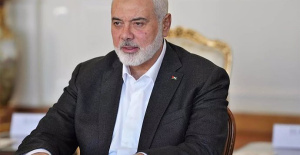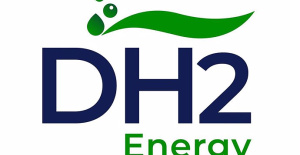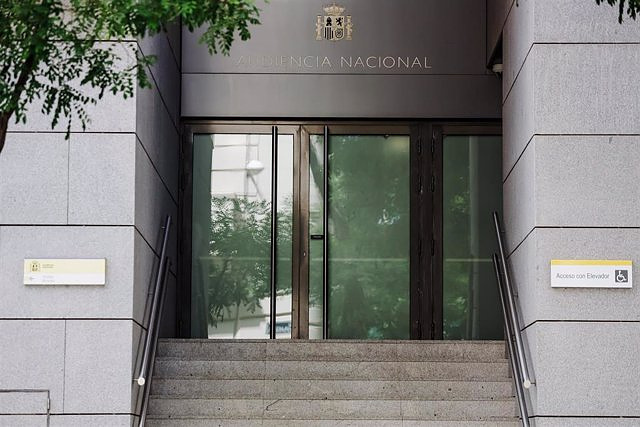This is how it responds to Repsol's request for precautionary suspension
The National Court has rejected this Friday the precautionary suspension of the order of the Ministry of Finance that develops the law that includes temporary taxes for energy companies and banks.
The Seventh Section of the Contentious-Administrative Chamber has resolved in an order the first request for precautionary measures requested in Repsol's appeal against models 795 and 796 (of the tax on energy companies) and models 797 and 798 (of the tax to banks) on the advance payment of the temporary liens established by the aforementioned law.
The Court considers that rejecting the suspension does not imply irreparable damage to the energy company, since if the appeal is finally upheld, it would be a situation that is perfectly reversible through the return of the amount paid with the payment of the mandatory interest.
Thus, it indicates that in this case "the damages derived from the non-suspension will only mean submitting to the obligation to make the declaration in the manner provided by the Ministerial Order".
And it adds that "obviously it is a perfectly reversible situation and reparable damages in the event that the claims sustained in the lawsuit that must be formulated by the appellant company are upheld."
"SERIOUS DAMAGE TO THE GENERAL INTEREST"
What's more, the Chamber says that, quite to the contrary, if the Order and with it the Law were suspended, it would cause "serious damage to the general interest by making it impossible to collect the tax."
It points out that if it were to accept the precautionary measure in question, it would leave unfulfilled "one of the requirements of the Law, which in its explanatory statement says that it has a primary collection purpose, in order to demand, in these times of energy crisis and inflation, a greater effort to those who have a greater economic capacity, that is, a show of solidarity from the great fortunes".
Thus, the court considers that the precautionary measure that Repsol is interested in would mean "the petrification of the legal system", since, by obtaining the precautionary measure with respect to the Development Ministerial Order, "the application of a law would be paralyzed which has a detailed justification in its statement of reasons and with respect to which this Chamber has nothing to say because it totally lacks competence to annul regulations with the force of law".
On the other hand, it warns that, although Repsol points out that in no case does it seek the suspension via precautionary justice of the law, "the reality is that such an effect would be inseparably linked to the adoption of the requested precautionary measure."
INFLATION AND THE UKRAINE WAR
Likewise, the Chamber stresses that the reasons for the implementation of this temporary tax, included in the law itself, refer to the increase in inflation, the influence of the Ukrainian War, the supply problems derived from the pandemic, or the insufficient increase in wages.
And it insists that the court should not assess these arguments because the courts cannot "determine the way in which the precepts of a general provision should be drafted to replace those that they annul, nor will they be able to determine the discretionary content of the annulled acts" .
The National Court also includes in its order that on February 10 it already rejected Repsol's initial claim to suspend the Ministerial Order by adopting very precautionary measures, that is, without requesting a report from the Administration.

 Exploring Cardano: Inner Workings and Advantages of this Cryptocurrency
Exploring Cardano: Inner Workings and Advantages of this Cryptocurrency Seville.- Economy.- Innova.- STSA inaugurates its new painting and sealing hangar in San Pablo, for 18 million
Seville.- Economy.- Innova.- STSA inaugurates its new painting and sealing hangar in San Pablo, for 18 million Innova.- More than 300 volunteers join the Andalucía Compromiso Digital network in one month to facilitate access to ICT
Innova.- More than 300 volunteers join the Andalucía Compromiso Digital network in one month to facilitate access to ICT Innova.-AMP.- Ayesa acquires 51% of Sadiel, which will create new technological engineering products and expand markets
Innova.-AMP.- Ayesa acquires 51% of Sadiel, which will create new technological engineering products and expand markets Hamas views Israel's latest deal proposal in "positive spirit"
Hamas views Israel's latest deal proposal in "positive spirit" The Ibex 35 rises 0.22% mid-session driven by Aena (4.66) and Sabadell (4.57%)
The Ibex 35 rises 0.22% mid-session driven by Aena (4.66) and Sabadell (4.57%) STATEMENT: Selena Romero and Roberto Pérez winners of the 22nd Nacho Juncosa Memorial - International under-16 tennis tournament
STATEMENT: Selena Romero and Roberto Pérez winners of the 22nd Nacho Juncosa Memorial - International under-16 tennis tournament STATEMENT: DH2 Energy is the winner in the first European renewable hydrogen auction
STATEMENT: DH2 Energy is the winner in the first European renewable hydrogen auction How Blockchain in being used to shape the future
How Blockchain in being used to shape the future Not just BTC and ETH: Here Are Some More Interesting Coins Worth Focusing on
Not just BTC and ETH: Here Are Some More Interesting Coins Worth Focusing on UPV students design an app that helps improve the ventilation of homes in the face of high temperatures
UPV students design an app that helps improve the ventilation of homes in the face of high temperatures Ivace and promotes a less invasive device for the early detection of prostate cancer
Ivace and promotes a less invasive device for the early detection of prostate cancer Valencia unanimously approves the ordinance to allocate spaces to test innovative initiatives
Valencia unanimously approves the ordinance to allocate spaces to test innovative initiatives UPV researchers promote a paid master's degree as a "talent factory" in integrated photonics
UPV researchers promote a paid master's degree as a "talent factory" in integrated photonics A million people demonstrate in France against Macron's pension reform
A million people demonstrate in France against Macron's pension reform Russia launches several missiles against "critical infrastructure" in the city of Zaporizhia
Russia launches several missiles against "critical infrastructure" in the city of Zaporizhia A "procession" remembers the dead of the Calabria shipwreck as bodies continue to wash up on the shore
A "procession" remembers the dead of the Calabria shipwreck as bodies continue to wash up on the shore Prison sentences handed down for three prominent Hong Kong pro-democracy activists
Prison sentences handed down for three prominent Hong Kong pro-democracy activists ETH continues to leave trading platforms, Ethereum balance on exchanges lowest in 3 years
ETH continues to leave trading platforms, Ethereum balance on exchanges lowest in 3 years Investors invest $450 million in Consensys, Ethereum incubator now valued at $7 billion
Investors invest $450 million in Consensys, Ethereum incubator now valued at $7 billion Alchemy Integrates Ethereum L2 Product Starknet to Enhance Web3 Scalability at a Price 100x Lower Than L1 Fees
Alchemy Integrates Ethereum L2 Product Starknet to Enhance Web3 Scalability at a Price 100x Lower Than L1 Fees Mining Report: Bitcoin's Electricity Consumption Declines by 25% in Q1 2022
Mining Report: Bitcoin's Electricity Consumption Declines by 25% in Q1 2022 Oil-to-Bitcoin Mining Firm Crusoe Energy Systems Raised $505 Million
Oil-to-Bitcoin Mining Firm Crusoe Energy Systems Raised $505 Million Microbt reveals the latest Bitcoin mining rigs -- Machines produce up to 126 TH/s with custom 5nm chip design
Microbt reveals the latest Bitcoin mining rigs -- Machines produce up to 126 TH/s with custom 5nm chip design Bitcoin's Mining Difficulty Hits a Lifetime High, With More Than 90% of BTC Supply Issued
Bitcoin's Mining Difficulty Hits a Lifetime High, With More Than 90% of BTC Supply Issued The Biggest Movers are Near, EOS, and RUNE during Friday's Selloff
The Biggest Movers are Near, EOS, and RUNE during Friday's Selloff Global Markets Spooked by a Hawkish Fed and Covid, Stocks and Crypto Gain After Musk Buys Twitter
Global Markets Spooked by a Hawkish Fed and Covid, Stocks and Crypto Gain After Musk Buys Twitter Bitso to offset carbon emissions from the Trading Platform's ERC20, ETH, and BTC Transactions
Bitso to offset carbon emissions from the Trading Platform's ERC20, ETH, and BTC Transactions Draftkings Announces 2022 College Hoops NFT Selection for March Madness
Draftkings Announces 2022 College Hoops NFT Selection for March Madness























